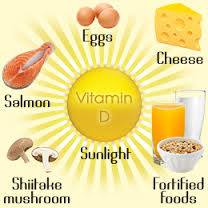|
|
|
Welcome from Vantage Business Support & Insurance Services
As an added benefit to our customers and associates VANTAGE is publishing a semimonthly newsletter with information, interactive tools, podcasts and other resources to help you live healthier. We will explore topics on total health and resources for you and your family, including fitness, nutrition, mental and physical health, weight management and more.
Thank you for being part of the VANTAGE family.
|
|
Please view our products list in the right sidebar.
This is just a sampling of what we feel would be important to you. We have much more to offer. If you have any questions or need more information please contact us at 877-886-8277 or click the link below.
|
|
5 Reasons to Skip White Bread For Good

Noshing on white bread comes with a side of health risks. Yes, that means baguettes, bagels, and pizza, too.
Key Takeaways Remember that sandwich bread is far from the only source of white bread in your diet: baguettes, bagels, and pizza all count, too.
After eating refined carbohydrates like white bread, the surplus of sugar in your bloodstream tends to be stored as fat in the body.
New research shows a link between the consumption of refined carbs and depression in post-menopausal women.
Most people know that white bread is a diet don't: One of the easiest swaps you can make for a major health boost is ditching refined flour in favor of whole wheat. But it's not just that loaf of Wonder Bread that you need to watch out for. The basket of rolls delivered to the table when dining out, the French baguette you grab on your way home to accompany dinner, your Saturday-morning bagel ritual, and Friday pizza night all come with a side of less-than-desirable health risks.
Here are five unpleasant reasons to nix the bread basket:
1. Little nutritional value. Yes, food is delicious, but at the end of the day we are eating for one reason: to nourish our bodies. And white bread made with refined flour fails to accomplish this goal. "When a grain is refined, such as in the making of flour for white bread, the outermost and innermost layers of the grain are removed. This removes the fiber and some (25 percent) protein, leaving behind the starch," says Erin Palinski-Wade, RD, author of Belly Fat Diet For Dummies. You may see "enriched flour" on the label. While this flour has had some nutrients like B vitamins and iron added back in after the refining process, it's still lower in fiber and protein than whole-wheat flour. Opting for whole-grain varieties carries with it a dose of healthy fiber and more protein, adding a nutritional boost to meals.
2. Erratic blood-sugar levels. "Since it's low in the fiber and protein that helps to slow digestion, white bread is digested and absorbed rapidly. This leads to blood sugar's rising quickly," says Palinski-Wade. This spike - and subsequent crash - in blood sugar not only leads to irritability, but will leave you headed to the vending machine for a pick-me-up.
3. Increased risk of type-2 diabetes. "When blood sugar elevates rapidly, excess insulin is released into the bloodstream to push the sugar into the cell," says Palinski-Wade. "When this occurs on a regular basis, cells become more insulin resistant, making it harder over time to control blood-glucose (sugar) levels. Research published in 2010 in the American Journal of Clinical Nutrition supports this, finding that people who consumed several servings of whole grains per day - and limited intake of refined grains - had less of a type of fat that increases risk of type 2 diabetes.
4. Weight gain. After eating refined carbohydrates like white bread, the surplus of sugar in your bloodstream - unless immediately utilized for activity - tends to be stored as fat in the body. Plus, the blood-sugar crash will leave you hungry soon after ingesting, so you'll be reaching for another snack. "Rapid digestion can increase hunger and cravings, leading to a lack of satiety after eating, which may result in increased caloric intake at the end of the day," says Palinski-Wade.
5. Symptoms of depression. It may taste good going down, but that white bread can negatively affect your mood. New research published in the June 2015 American Journal of Clinical Nutrition found a link between the consumption of refined carbohydrates - like white bread - and depression in post-menopausal women. The same hormonal response that causes blood-sugar levels to drop can also cause mood swings, fatigue, and other symptoms of depression.
Tips for Keeping White Bread Off the Menu
1. Skip the bread basket. When dining at a restaurant that serves bread baskets, ask the waiter not to drop one off at your table - it'll reduce temptation. If you feel the need to munch before your meal arrives, order some crudité with a light dip like hummus, or a side salad.
2. Look for "100% whole grain" or "100% whole wheat" on the package, and be sure to check the ingredients list when purchasing a loaf of bread. Simply listing whole-wheat or whole-grain on the label isn't enough: many whole-wheat varieties contain enriched, refined flour as the first ingredient, meaning the bread contains more refined flour than whole wheat. It's important to note that there is a variety of wheat that is white and lacks color in the bran. This wheat has a milder flavor and texture, prompting some bread companies to use it to produce healthier products, which is a better option for those who don't like the taste or texture of whole-wheat bread. However, you still need to check the labels carefully to ensure that white whole wheat is the first ingredient listed.
3. Make smart bread swaps. Even healthy whole-grain breads can blow your daily calorie count when eaten in excess. Look for creative, tasty ways to swap out bread and other refined carbs in your favorite dishes, like using leafy greens as wraps for your sandwich toppings or making zucchini boat "pizzas," no crust necessary! SOURCE: By Brianna Steinhilber Reviewed by Maureen Namkoong, RD
|
|
DID YOU KNOW???
Vitamin D
 Try using case studies, success stories,
Are You Getting Enough of This Disease Fighting Vitamin?
The amount of vitamin D in your blood is proven to be a good barometer of overall health - and may even lower your risk for certain diseases.
Here's how to be sure you're getting your daily D.
Experts debate over exactly how much vitamin D we need in our diets - but one thing's for certain: We need it.
Known as the "sunshine vitamin," vitamin D promotes calcium absorption in the body and is necessary for bone health as well as many cellular and immune system functions. Numerous studies have found that a deficiency in the vitamin may increase your risk of many chronic diseases; in the past month alone, scientists published two separate studies that found that people with low vitamin D levels are more likely to die from cancer and heart disease and to suffer from other illnesses.
One of the studies (published in BMJ) found that adults with lower levels of the vitamin in their systems had a 35 percent increased risk of death from heart disease, a 14 percent greater likelihood of death from cancer, and a greater mortality risk overall. The other study published found "suggestive evidence" that high vitamin D levels protect against diabetes, stroke, hypertension and a host of other illnesses.
If your doctor suggests improving your vitamin D levels - or you simply want to in hopes of warding off health issues - it's possible to do so naturally and without supplementation. (Indeed, the team of researchers responsible for the second study also determined that there was no highly convincing evidence that vitamin D supplement pills affected any of the outcomes they examined.) Here are the best ways:
* Eat more fatty fish. Salmon (especially wild-caught), trout, mackerel, tuna, and eel are all good sources of the vitamin, and they offer plenty of heart-boosting omega-3 fatty acids as well. Aim to fit fish in at dinner at least once a week, such as this simple grilled salmon dish that's perfect for spring.
* Drink fortified milk or OJ. Most types of cow's milk in the United States are fortified with vitamin D, and one eight-ounce glass will give you roughly one-third of recommended daily amount of vitamin D, 600 international units (IUs). Several orange juice brands are fortified as well.
* Say yes to the yolk. Egg yolks have gotten a bad rap in the past because they're full of cholesterol. But yolks also provide a host of important nutrients - calcium, iron, zinc, folate, and vitamins A, E, and K to name just a few - including 9 percent of your daily amount of vitamin D. (Just don't eat too many - research has shown that moderate egg consumption of one egg per day does not increase heart disease risk in healthy individuals. * Step outside. Your body is built to get vitamin D through your skin, which is why exposure to sunlight is the best way to get your D. But because of skin cancer and other risk factors associated with the sun, experts suggest getting only a moderate amount of direct sunlight - like 20 to 30 minutes - each day. Just remember that sitting by a window won't work; you've got to step outside to reap the benefits (and while you're at it, why not make it a brisk walk to burn calories and boost cardio health?).
* Let your 'shrooms get sun too. Just like sunlight can help your body make vitamin D, one of the most versatile veggies around can perform the same feat. Sliced and dried mushroom, including wild ones, will soar in vitamin D when placed outdoors under the sun - or placed under UV light for even more vitamin D. (Most grocery stores stock UV-treated mushrooms.)
SOURCE: Debbie Strong
|

Here's your "QuoteAction" for this issue:
"Too often the opportunity knocks, but by the time you disengage the chain, push back the bolt, unhook the two locks and shut off the burglar alarms, it is too late."
Singer, Rita Coolidge
Your action for today is to look for an opportunity to do something you've wanted to do and act on it.
Have an extraordinary day!
SOURCE: Betty Jo Waxman
Productive Learning & Leisure, LLC |
|
Disclaimer of Liability
Our firm provides the information in this e-newsletter for general guidance only, and does not constitute the provision of legal advice, tax advice, accounting services, investment advice, or professional consulting of any kind. The information provided herein should not be used as a substitute for consultation with professional tax, accounting, legal, or other competent advisers. Before making any decision or taking any action, you should consult a professional adviser who has been provided with all pertinent facts relevant to your particular situation. Tax articles in this e-newsletter are not intended to be used, and cannot be used by any taxpayer, for the purpose of avoiding accuracy-related penalties that may be imposed on the taxpayer. The information is provided "as is," with no assurance or guarantee of completeness, accuracy, or timeliness of the information, and without warranty of any kind, express or implied, including but not limited to warranties of performance, merchantability, and fitness for a particular purpose.
|
|
|
|
|
Vantage Business Support & Insurance
4096 Piedmont Ave #616 / Oakland / CA / 94611
28346 Alava / Mission Viejo / CA / 92692
|
|
$25
Gift
Card
|
As a special member of the Vantage family, if you refer us to any of your friends, family, or business associates and they purchase any of our products we will send you a
$25 GIFT CARD to the retail establishment of your choice. Just let us know who you referred us to or have them inform us that you referred us.
Referral Form
|
|
|
|